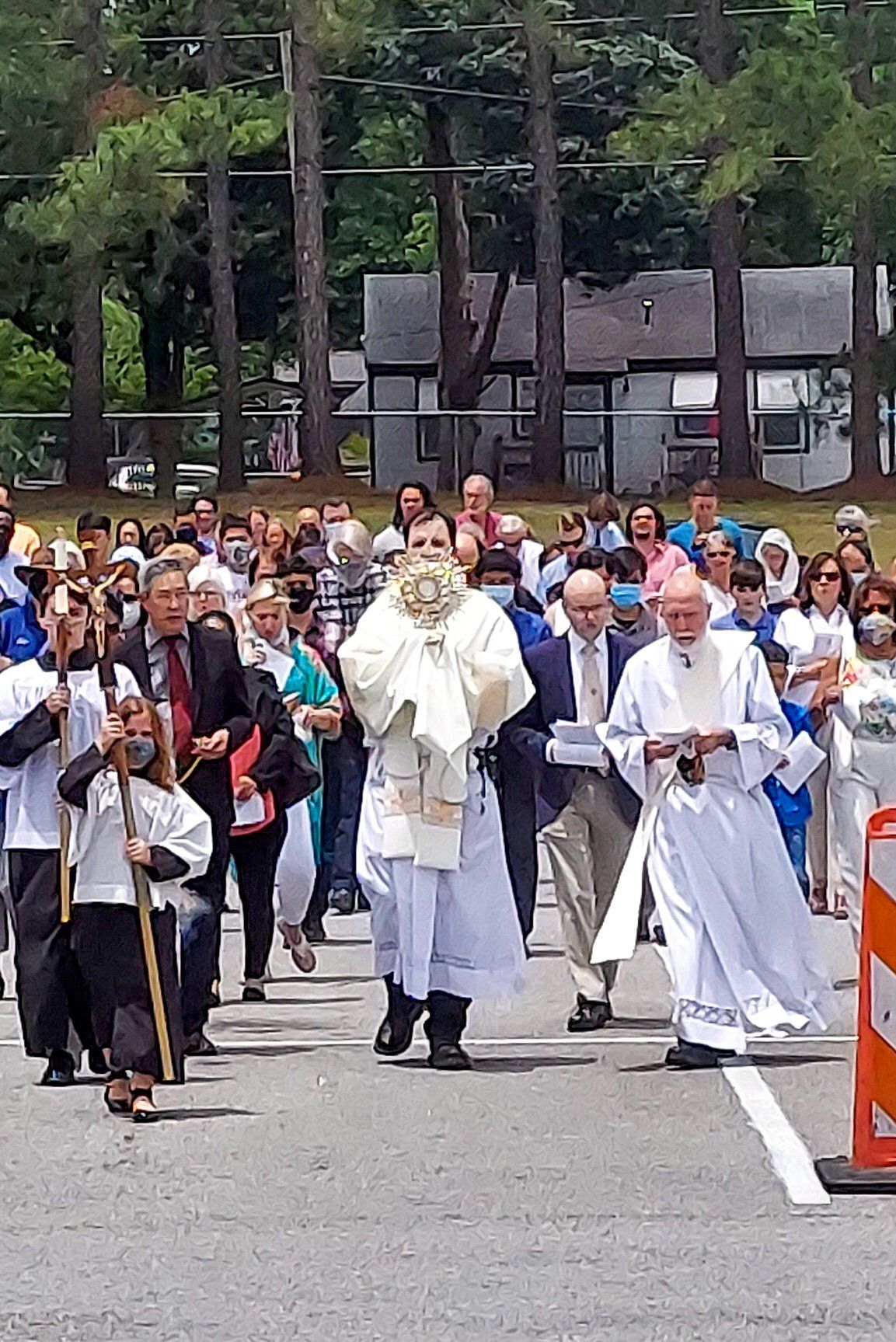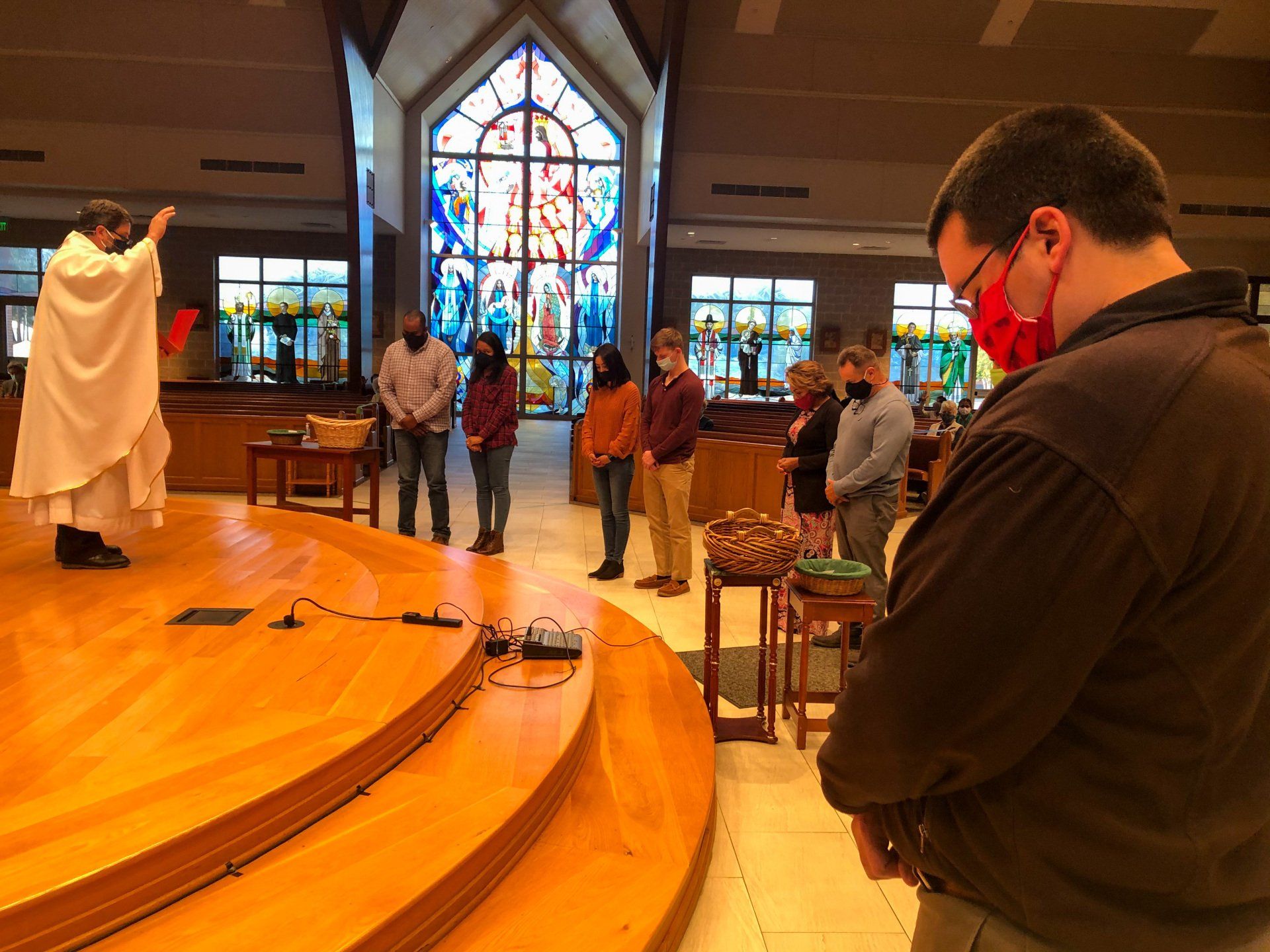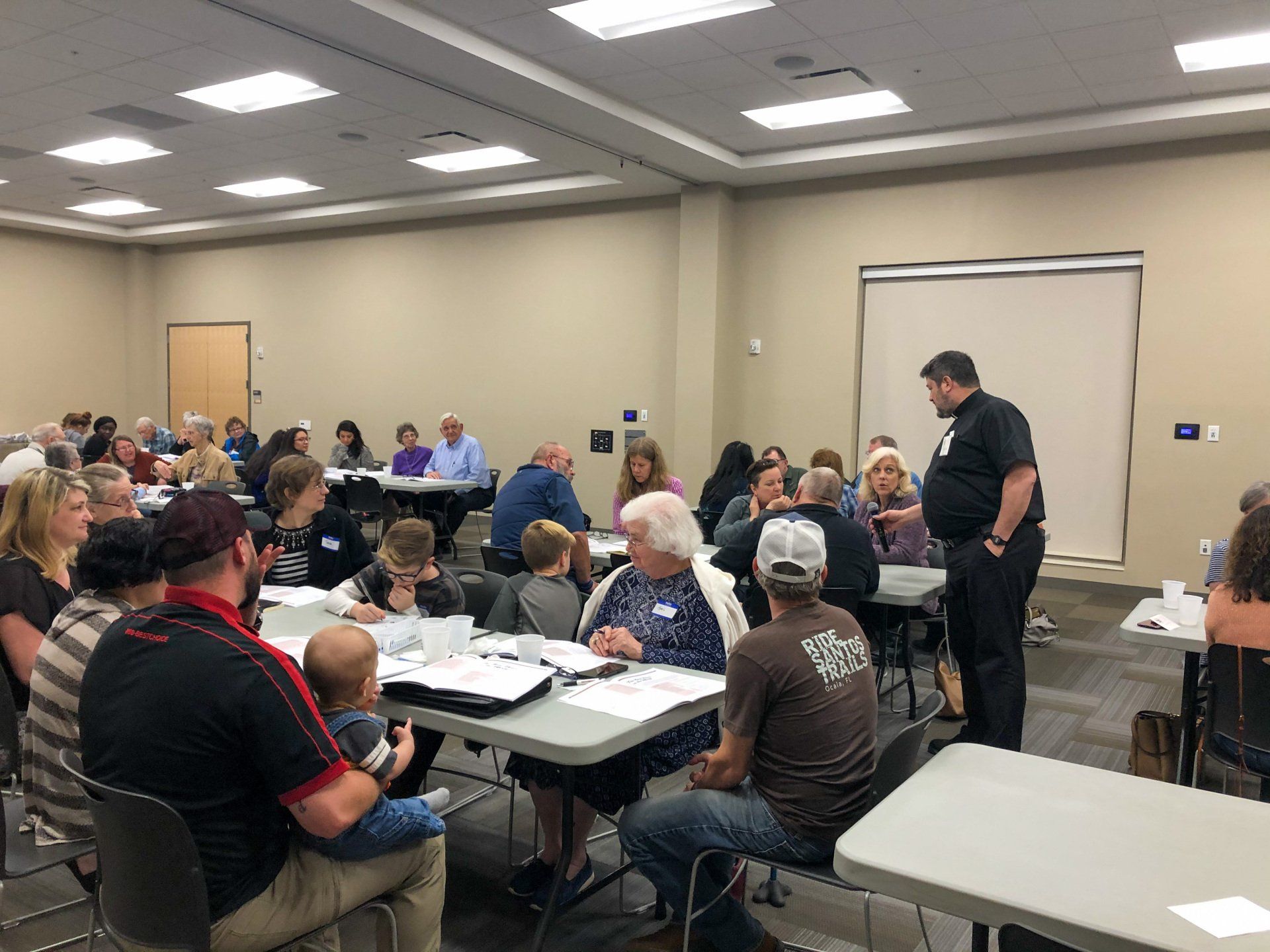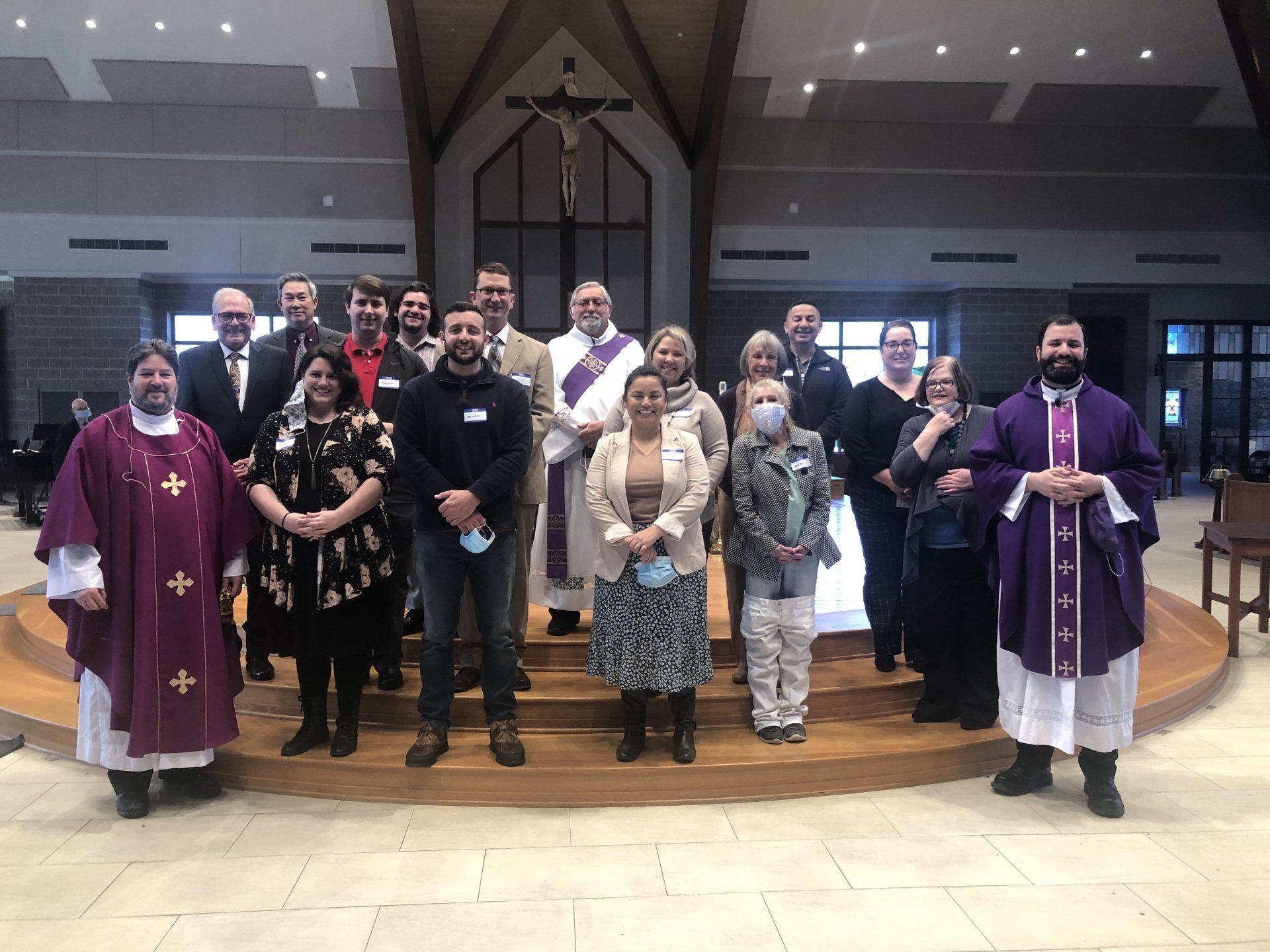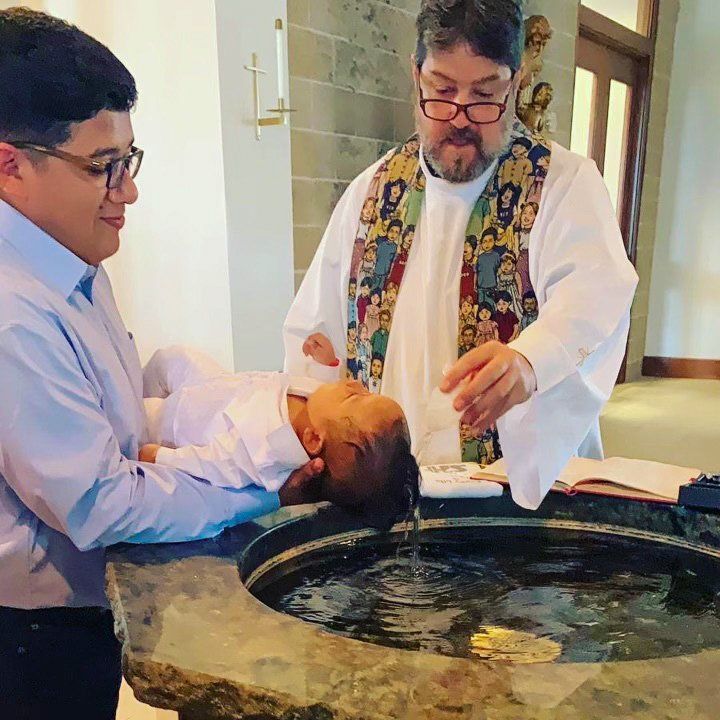Registration: Contact Deacon Ron at 478-923-0124 or deaconron@sacredheartwr.com
Frequently Asked Questions:
What is OCIA?
OCIA, formally RCIA, stands for “Order of Christian Initiation for Adults.” It is the process by which adults and older children are gradually introduced to Catholic beliefs and practices. It an ancient rite of the Church which was restored by Vatican II as the normal way in which adults are initiated into the Church.
How does OCIA work at Sacred Heart?
Here at Sacred Heart, sessions run from August through May or early June. The group meets on Wednesday evenings from 6:15pm to 8:00pm. Those who decide to complete OCIA and become Catholic will typically receive the Sacraments at the Easter Vigil Mass (the night before Easter), which completes their initiation into the Church. However, depending on an individual’s situation, it can take longer.
What are the steps?
The OCIA is divided into 4 periods:
- Period of Inquiry/The Pre-Catechumenate.
- Period of the Catechumenate
- Period of Purification and Enlightenment.
- Period of Mystagogy
What does it mean to be “fully initiated” into the Catholic Church?
There are 7 Sacraments in the Catholic Church. Three of these are known as the Sacrament of Initiation. These three are 1) Baptism, 2) Eucharist (Communion), and 3) Confirmation. As a participant in OCIA, you will receive 2 or 3 of these sacraments, depending on whether you have already been validly baptized.
What is a candidate? What is a catechumen?
A candidate is the term used for a person who is already validly baptized (Catholic or otherwise) but who wishes to become fully initiated into the Catholic faith. If they choose to complete OCIA they will receive the Sacraments of Eucharist and Confirmation at the Easter Vigil. A catechumen is a person who is unbaptized. If they choose to complete OCIA, they will receive the Sacraments of Baptism, Eucharist and Confirmation at the Easter Vigil.
What happens during the sessions?
Sessions are led by a team which includes the two priests and two deacons from the parish and several lay leaders (“lay” means a person who is not a priest, deacon, or religious person like a sister.) In addition there are occasional guest presenters throughout the year, usually individuals from the parish with special expertise in a particular area. Each session will focus on a particular topic. The session consists of a teaching on this topic followed by a time for discussion to ask questions and apply the material to our lives. We also always make time for prayer together. You will be a part of a group of people from all walks of life - young, old, different backgrounds and jobs. Some are absolutely certain they are ready to join the Church, others are somewhat interested but still searching. Some have no religious background at all, some have been members of a Protestant Christian community in the past, some were baptized Catholic as infants and never practiced the faith or learned much about it, and are now coming back to the Church as adults. They are drawn to the Church for a variety of reasons.
Is there any cost?
No. There is no cost.
What is expected of me?
- We require regular attendance at sessions every week. Joining the Catholic Church is an enormous, life-changing decision, and not to be taken lightly. We ask that you take an honest look at your schedule and whether you are able to truly commit to this process. (If you are unable to change your schedule to attend every Wednesday night, please talk with a member of the OCIA team so we can figure out how to proceed.)
- We also require that you attend Mass. (Mass times at Sacred Heart are Saturday at 5:00 pm, Sunday at 9:00 am, 11:45 pm and 2:00 pm in Spanish).
- Most weeks we will have a few short readings for you to complete for the following session.
- We ask that you spend time in prayer every week on your own. We can help you with this if you don’t know where to start.
- Lastly, your lifestyle will show a sincere desire to live a Christian life, or at least be moving toward that. We are all sinners, but we are also all called to holiness, and we also know that Christ’s mercy is endless, infinite. The priests are here to help counsel you if there is anything you would like to talk over.
What is the Easter Vigil?
The Easter Vigil is the Mass held after sunset the night before Easter. It is when candidates and catechumens complete their initiation into the Catholic Church.
What if I am already baptized?
The Catholic Church does not “re-baptize” people. If you were baptized with water “In the name of the Father, Son, and Holy Spirit” the Catholic Church recognizes this as a valid baptism, even if you were baptized in a non-Catholic Christian church. You would be preparing to receive Eucharist and Confirmation in order to be initiated into the Catholic Church.
Can I attend Mass if I am not Catholic?
Absolutely. In fact you must attend Mass if you are part of OCIA and preparing to become Catholic. The Mass is the center of Catholic life and it is a sin for a Catholic to miss Mass unless there is very good reason (like a serious illness--going on vacation is NOT considered a serious reason.) If you are unsure of what is happening and what to do during Mass, the leaders of the OCIA group are happy to help and explain.
Is it okay for me to receive communion if I am not yet Catholic?
No. Catholics believe that the Eucharist is actually, truly Jesus present in the Eucharist- body, blood, soul, and divinity. It is NOT “just a symbol..” Because Catholics believe that the celebration of the Eucharist is a sign of unity of faith, life, and worship, those who do not believe in Jesus, or those Christians with whom Catholics are not fully united are not normally admitted to communion. We must pray for the unity of all Christians. Furthermore, even Catholics do not receive communion in certain circumstances, for example, if they are too young, if they have eaten within an hour of Mass, or if they are guilty of serious sin. However, you may come forward to receive a blessing. Just cross your arms over your chest and get in the line with the priest or deacon (the men wearing vestments.) If you watch you will see many people doing this. Don’t worry. You can receive Jesus in the Eucharist for the 1st time at the Easter Vigil Mass if you continue with RCIA.
Does joining OCIA means that I have to become Catholic? I am still exploring.
No. We welcome all those who are interested in learning more about the Catholic faith. There are times during the process when it is up to you to decide whether you are ready to make a full commitment to the Catholic faith.
What if I am married outside the Church? Or divorced? Do I need an annulment?
Every situation is different, however, most of the time it will be possible for you to receive the Sacraments. We will ask you for details about your marriage situation early in the year to see if there would be a need for either a marriage validation or an annulment. It is important to deal with these issues EARLY in the year, since an annulment can take 6-12 months. We can help you with any required paperwork. Information is confidential.
I am uncomfortable with some Catholic beliefs.
To be Catholic is to believe and profess as true all that the Church teaches. This is not to say that some Catholic teachings may be not more difficult than others. It is important to realize that there are many misconceptions about Catholic beliefs floating around. For example, many believe that Catholics “worship” Mary and the saints, which is simply not true. The teachings of the Church are the product of scripture (the Bible), two-thousand years of tradition, and teaching authority handed down by Jesus to the Apostles, and from then to a succession of popes and bishops which has been unbroken for two millennia. During the OCIA process you can learn about what the Church really teaches, and why. Also, please ask questions.
Do I need a sponsor?
Yes, each OCIA participant needs a sponsor. This person can participate in the process with you and help guide and support you on your journey. If you do not have one, we can find one for you by matching you with a lay member of the parish.
What are the requirements to be a sponsor?
A sponsor must be a confirmed, practicing Catholic who is at least 16 years old and in good standing with the Church.
What do the sponsors have to do? Do they need to attend weekly sessions?
Sponsors are called to show the candidates good example of the Christian life, sustain the candidates in moments of hesitancy and anxiety, bear witness, and guide the candidate's progress in the baptismal life. We encourage them to attend sessions with you as much as possible in order to support you in this journey of faith.


